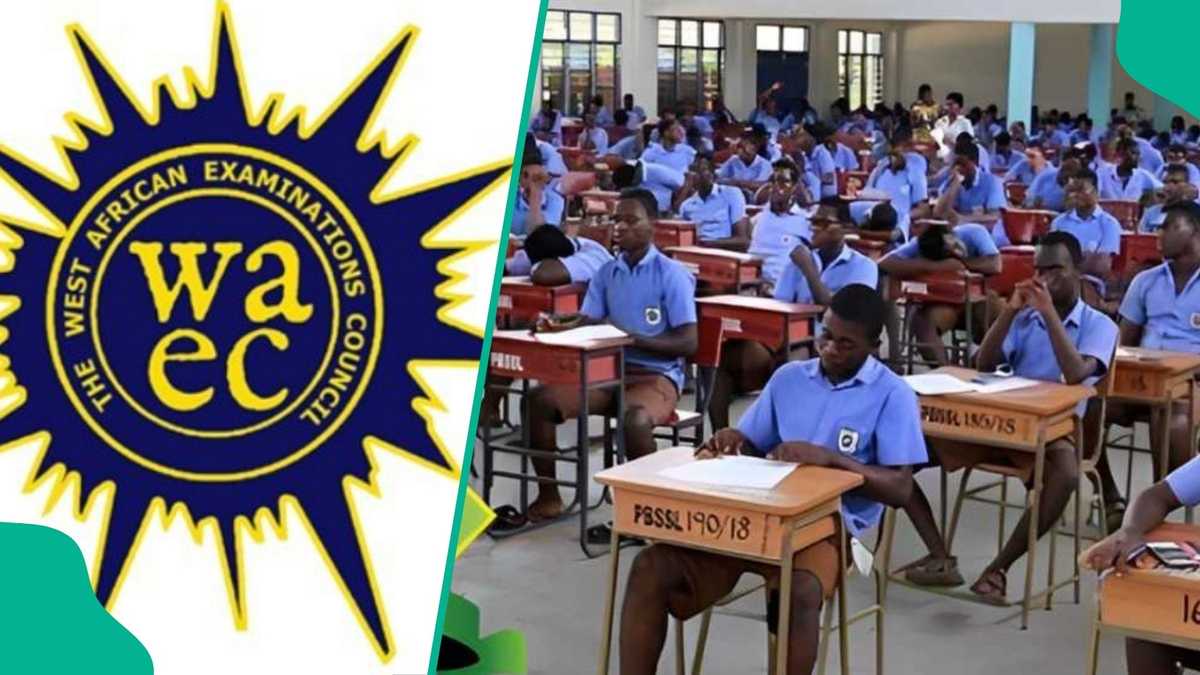By Bayo Olupohunda,Ezra Ukanwa
Copyright legit

WAEC released the 2026 WASSCE subject combinations, barring Science and Arts students from taking Economics to align studies with career pathsEnglish Language, Mathematics, and Civic Education remain compulsory for all candidates, while Business students retain Economics as a core subjectWAEC introduced 35 trade subjects to boost students’ practical and entrepreneurial skills, mandating at least one trade subject per candidate
FCT, Abuja – The West African Examinations Council (WAEC) has released the official subject combinations for candidates sitting the 2026 West African Senior School Certificate Examination (WASSCE).
Under the new arrangement, Science and Arts students will no longer be permitted to take Economics, a move WAEC says is aimed at ensuring academic alignment with students’ chosen fields of study.
WAEC excluded some subjects
According to WAEC, only students in the Business or Commercial department will be allowed to register for Economics during the 2026 examination.
“This new structure is designed to help students focus on subjects that align directly with their intended career paths,” a WAEC official said.
Traditionally, the WAEC subject combination comprises a minimum of seven and a maximum of nine subjects, with English Language and Mathematics remaining compulsory.
2026 WAEC: 3 subjects remain compulsory for all students
WAEC reaffirmed that English Language, Mathematics, and Civic Education remain compulsory for all candidates, regardless of department.
“These core subjects are essential for every student, as they form the foundation for higher learning and national development,” the Council stated.
Updated combinations for science students
Under the revised guidelines, science students are expected to focus on Physics, Chemistry, and Biology, alongside compulsory subjects.
They may also include elective options like Further Mathematics, Technical Drawing, and a local language such as Yoruba, Igbo, or Hausa.
Approved Science subjects include:
English LanguageMathematicsCivic EducationPhyscsChemistryBiologyGeographyAgricultural Science
Arts students barred from Economics
In a similar shift, Arts students studying Literature, Government, or History will no longer be permitted to take Economics.
The new Arts combination includes:
English LanguageMathematicsCivic EducationLiterature in EnglishGovernment or HistoryReligious Studies (CRS or IRS)A local language (Yoruba, Igbo, or Hausa)
WAEC, however, said students still have the freedom to include electives such as Arabic, Music, or French.
Commercial students to focus on business-related subjects
For Commercial students, the Council emphasised that the focus remains on business, management, and financial studies.
Their combination includes:
Civic EducationEconomicsAccountingCommerceGovernmentOffice Practice
Additional electives include Bookkeeping, Marketing, and Languages.
WAEC introduces 35 trade subjects for skill acquisition
WAEC also maintained its inclusion of 35 trade and entrepreneurship subjects, such as Catering Craft Practice, Garment Making, Auto Mechanics, and Data Processing.
“These trade subjects are aimed at equipping students with practical, employable skills for the modern economy,” the Council explained.
Students are required to take at least one trade or entrepreneurship subject to meet examination requirements.
Guidelines for subject selection
WAEC provided a detailed guide for students when selecting their subjects:
Each candidate must take the three compulsory subjects.
One trade/entrepreneurship subject is mandatory.
Students may choose 2–5 additional subjects from their field of study, ensuring a total of eight to nine subjects.
The Council advised schools to counsel students properly to ensure compliance with the new directives.
FG declares technical colleges tuition-free
Earlier, Legit.ng reported that the federal government approved a nationwide tuition-free policy for all Federal Science and Technical Colleges, removing the cost barrier for thousands of students seeking technical education.
The initiative, which also cancels several mandatory charges, is aimed at expanding access to skills-based learning and supporting families struggling with rising school expenses.
According to the federal ministry of education, the policy eliminates payments for boarding, uniforms, textbooks, exercise books, prospectus, identity cards, medical services, clubs and societies, vocational activities, utilities, website or e-result services, extra lessons, and insurance.
Source: Legit.ng